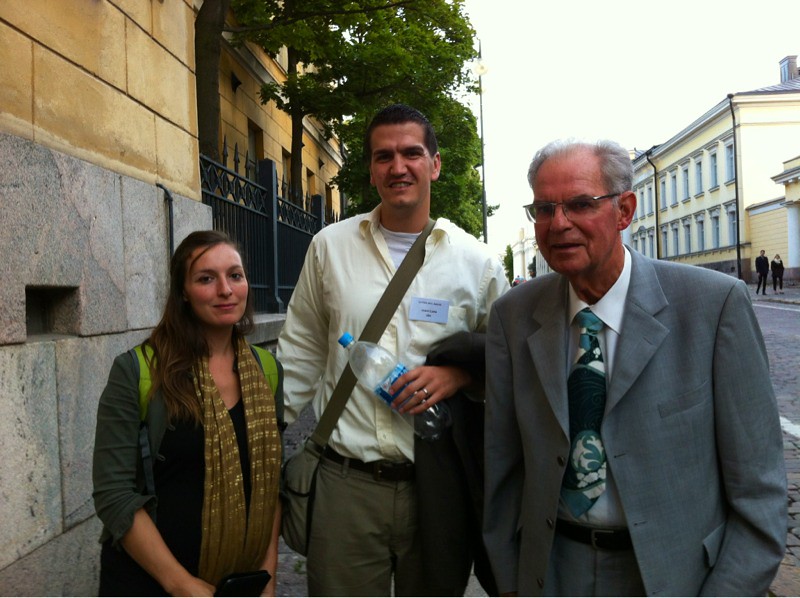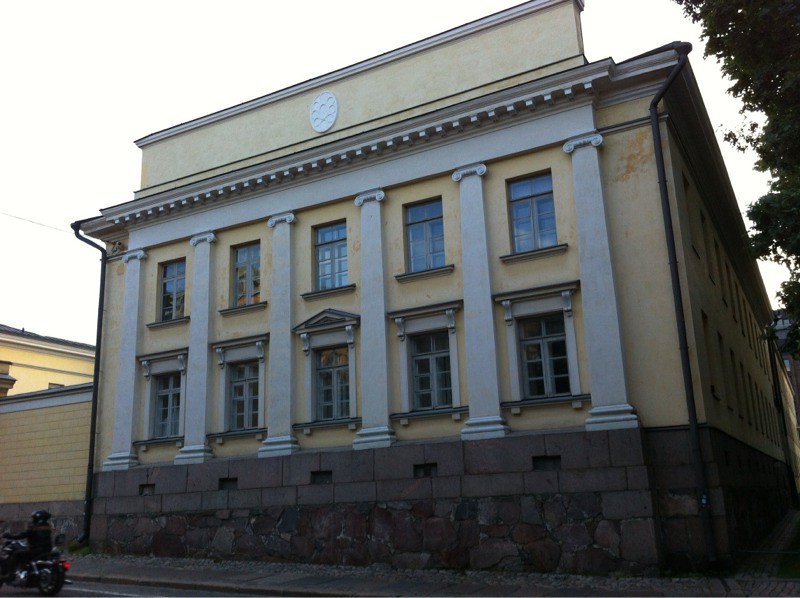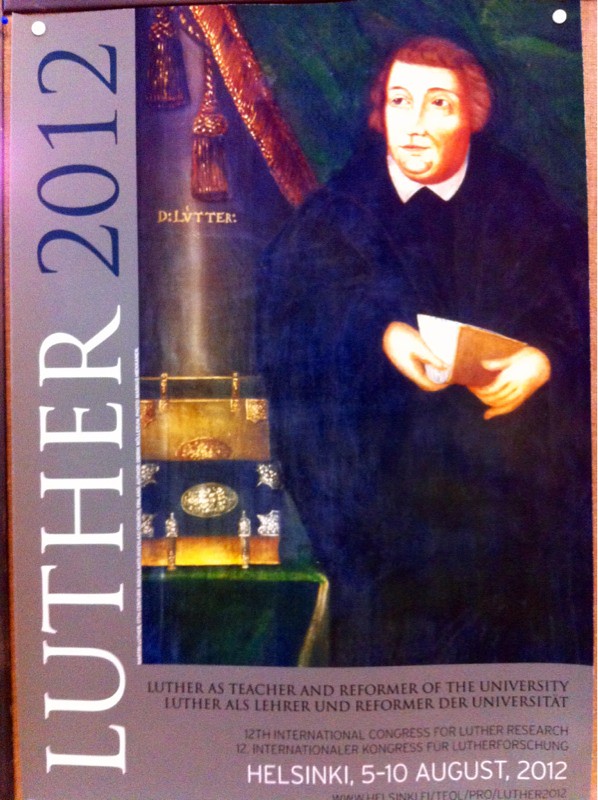
Luther Congress delegates listen to plans about the celebration of the 500th anniversary of the Reformation in Wittenberg, Germany, in 2017. The Lutheran World Federation (LWF), which the LCMS is not a member, has been making plans for the 2017 celebration, as have the German Protestant Churches. The 13th International Congress for Luther Studies will be held in Wittenberg, Germany, in 2017.

On of the emphases of the Luther 2017 celebration is that Luther and his message is for the entire world, not just one confession (i.e. Lutherans) or one people (Germans). In a broad sense this is true. The message of the Gospel that Luther proclaimed is for all people and is not limited to a nation or cultural group. The broad promotion of Luther tends toward minimizing confessional differences and glosses over the particular Lutheran Confession of Faith found in the Book of Concord.

One of the ways, the Lutheran World Federation (LWF) and the churches in Germany decided to commemorate the 500th anniversary of the Reformation was to plant a Luthergarten in the shape of a Luther Rose. Each church body that participated, planted a tree in the name of the church with a Bible passage. The Lutheran Church - Missouri Synod did participate in the Luthergarten. You can see the LCMS' contribution here.

Tree #139
Species: Sorbus aria 'Magnifica' - 'Mehlbeere'
Godfather: Lutheran Church Missouri Synod, United States of America
Planted by Reverend Samuel Nafzger
Members: 2.489.000
Bishop: Präsident Rev. Matthew Harrison
biblical vote: John 15, 5: "I am the vine; you are the branches. Whoever abides in me and I in him, he it is that bears much fruit, for apart from me you can do nothing."

The LCMS through the International Luther Society of Wittenberg (ILSW) is planning a Luther study center and guest / welcome center in Wittenberg at the Old Latin School across from the City Church, where Luther preached (pictured above). It is hoped the center will be completed in time for the 2017 celebration. The Lutheran World Federation (LWF) also has established a center in Wittenberg, called LWB-Zentrums.

Marta Lane and Rev. Jason Lane are with Dr. Prof. Oswald Bayer, one of the foremost Luther scholars alive today. The International Congress for Luther Studies provides the opportunity to visit and discuss Luther scholarship. Both Rev. Dr. Roland Zeigler of Concordia Theological Seminary in Fort Wayne and Rev. Jonathan Mumme of Westfield House in Cambridge, England, studied under Dr. Bayer.

Dr. Gerhard Bode from Concordia Seminary St Louis, Dr. Christopher Brown, Associate Professor of History at Boston University, LCMS church member and general editor to CPH's Luther's Works, and Dr. Albert Collver discuss Martin Luther's doctrine of creation and his "heroic prayer" for Melanchthon.

Delegates listening to one of the final lectures at the 12th International Congress for Luther Studies.

The time in Helsinki at the 12th International Congress for Luther Studies has been very good and profitable. The conversation among scholars is very helpful in that the "topics" chosen for Luther research are a reflection of societal challenges. Luther scholars reach back into the writings of Martin Luther to seek enlightenment on contemporary issues. A popular word at the Luther Congress was "re-Contextualization." As with the US Constitution and the Holy Scriptures, people tend toward different hermeneutical approaches to texts: such as a literal and historical reading to a revisionist approach that looks to what (in this case) Luther said in his day and ponders how he might have said it differently today. For instance, some hold to how the proper distinction between Law and Gospel was a major consideration for Luther's approach, while others believe there are new and better paradigms to Law and Gospel, such as two kinds of righteousness. For example, Dr. Christine Helmer presented on "Teaching Theology with Luther." She held that Luther's distinction between Law and Gospel falls "flat footed" in the modern age. In contrast, Dr. Mark Mattes' paper, "Luther's Use of Philosophy," held that the proper distinction between Law and Gospel governed Luther's appropriation and use of philosophy. Dr. Mattes said,"At best, philosophy can function as a third use of the Law. At worst, it can destroy faith."

The lectures, sectionals, and conversations were very stimulating and helpful for further thought and discussion.
- Posted by Rev. Dr. Albert Collver, LCMS Director of Church Relations on 10 August 2012 in Helsinki, Finland.
- Posted using BlogPress from my iPad
Location:Kluuvikatu,,Finland
I noticed that the Roman Catholic Church selected the following for their verse (with #1 tree):
ReplyDeletePsalms 1, 1-3: "Blessed is the man who walks not in the counsel of the wicked, nor stands in the way of sinners, nor sits in the seat of scoffers; but his delight is in the law of the Lord, and on his law he meditates day and night. He is like a tree planted by streams of water that yields its fruit in its season, and its leaf does not wither. In all that he does, he prospers."